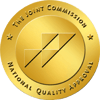In the early days of sobriety, motivation can feel like an unshakable force. You may have entered recovery with a deep sense of purpose—wanting to rebuild relationships, restore your health, or regain control over your life. But as time passes, that initial fire may dim. Daily stressors, routine, and even success can sometimes make it easy to lose sight of why you chose sobriety in the first place.
- Home
- >
- The Estate News & Blog
When Motivation Fades: Re-Igniting Your 'Why' in Sobriety
Topics: Healthy, Resources, Sobriety tips, Sobriety, Self Care
How Long Does Fentanyl Stay in Your System?
Fentanyl is a synthetic opioid that is 100 times more potent than morphine. It is commonly prescribed to manage severe chronic pain conditions. Despite its medical use, fentanyl’s strength makes it highly addictive and dangerous when misused.
Topics: Addiction, Substance Abuse, Resources, Sobriety
Fentanyl Street Names: Identifying Other Names for Fentanyl
Fentanyl is a synthetic opioid that is 100 times more potent than morphine. It is prescribed for chronic pain but has become a significant factor in the rise of drug overdoses. Recognizing fentanyl street names is crucial to understanding its hidden dangers and preventing misuse. This article will explore the various other names for fentanyl, why they matter, and the steps to address this crisis.
Questions Answered:
- What is Fentanyl?
- How Do Street Names for Fentanyl Evolve?
What is Fentanyl?
Fentanyl is a powerful opioid analgesic used in medical settings to treat severe chronic pain. Doctors prescribe fentanyl patches and other formulations for conditions like cancer-related pain.
However, fentanyl is also found on the streets, where it is often mixed with other substances or sold as counterfeit pills. Its potency makes it incredibly dangerous, especially when abused. Even a tiny amount of fentanyl can cause death to its users.
This extreme potency has led to its frequent mixing with other drugs, such as heroin or cocaine, often without the user's knowledge. The result is an alarming increase in overdoses and fatalities, underscoring the importance of public awareness and education.
In addition to its medical uses, fentanyl’s illicit manufacturing has expanded significantly. Illegal labs often produce the drug in unregulated environments, leading to variations in potency. This unpredictability increases the risk of accidental fentanyl overdoses, making it a leading contributor to the ongoing opioid crisis.
Street Names for Fentanyl
Understanding slang names for fentanyl can help identify its presence in illegal markets. Dealers and users often use these terms to conceal the drug's identity. Common fentanyl slang names include:
- Apache
- China Girl
- China Town
- China White
- Dance Fever
- Dragon’s Breath
- Fire
- Friend
- Goodfellas
- Great Bear
- He-Man
- Jackpot
- Lollipop
- Murder 8
- Tango & Cash
- TNT
Some fentanyl street names are derived from its appearance or color such as:
- Blue Diamond - refers to blue fentanyl
- China White - refers to the white color of fentanyl
- Gray Stuff - indicates gray-colored fentanyl
- King Ivory - describes ivory-colored fentanyl
Topics: Addiction, Treatment, Substance Abuse, Resourses
Street Names For Meth and Decoding Drug Slang
Methamphetamine, commonly known as meth, is a highly addictive stimulant affecting people across the United States. Understanding meth-related slang and street terms is vital for addressing meth abuse and addiction.
This knowledge can help law enforcement, parents, and educators detect and combat drug use early. Below, we’ll explore common street names for meth, crystal meth slang, and why decoding these terms matters.
Questions Answered:
- What is Methamphetamine?
What is Methamphetamine?
Methamphetamine, or meth, is a synthetic stimulant affecting the central nervous system. It is prescribed in rare cases for medical use but is often misused illegally.
Meth can take several forms, including powder, pills, and crystalline structures. These forms are often referred to using specific slang terms to avoid detection by authorities.
Meth is often smoked, snorted, injected, or swallowed. Regardless of the method, meth’s effects are intense and long-lasting, contributing to its high potential for addiction.
Common Street Names for Meth
Topics: Addiction, Substance Abuse, Resources
Cocaine Street Names: Understanding Slang Names and Risks
Cocaine is a powerful stimulant drug derived from the coca plant. It is widely used and abused in the United States. Understanding the slang terms for cocaine can help you identify its use, protect loved ones, and take steps toward prevention or treatment.
Topics: Addiction, Treatment, Substance Abuse, Resources
Coping with Loneliness in Recovery During Valentine’s Week
For many, Valentine’s Week is a time filled with expressions of love, connection, and togetherness. But for men in recovery—especially those who find themselves alone due to the consequences of their addiction—this week can be a painful reminder of what was lost. It’s easy to feel isolated, to dwell on past relationships that didn’t survive the weight of addiction, or to compare yourself to others who seem to have it all together.
Topics: Treatment, Recovery, Healthy, Mental Health, Sobriety tips, Luxury Rehab
How Long Do Opioids Stay in Your System?
Opioids are a class of drugs used for pain relief. They are highly addicting and have significant risks when misused. If you take opioids, you may wonder, "How long do opioids stay in your system?"
Topics: Addiction, Treatment, Substance Abuse, Resources
Commonly Abused Drugs: Understanding the Risks
Drug abuse remains a critical issue in the United States, affecting millions of individuals each year. While illicit drugs often steal the spotlight, prescription and over-the-counter (OTC) medications are also commonly abused. Understanding which drugs are frequently misused, recognizing the signs of addiction, and knowing how to seek treatment are key steps in combatting this growing problem.
Topics: Addiction, Treatment, Substance Abuse, Resourses
Overcoming Emotional Numbness: Learning to Feel Without Substances
In the journey of sobriety, one of the most unexpected and challenging aspects can be learning how to feel again. For many men, the use of substances served as a numbing agent—a way to suppress difficult emotions, navigate stress, or simply escape the complexities of life. However, once substances are removed, what remains can often feel overwhelming. Embracing emotions without the crutch of substances is not only possible but also vital to long-term recovery and personal growth.
Topics: Recovery, Soberman's Estate, Healthy, Mental Health, Sobriety tips, Depression
Understanding Street Names for Marijuana (Cannabis)
Marijuana is one of the most commonly used substances in the United States. Despite its growing legalization, it continues to have a wide variety of slang names.
Topics: Addiction, Treatment, Substance Abuse, Resources
















